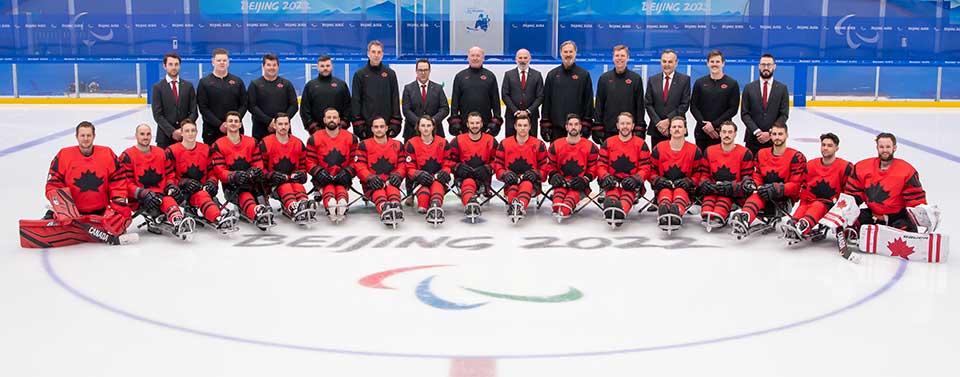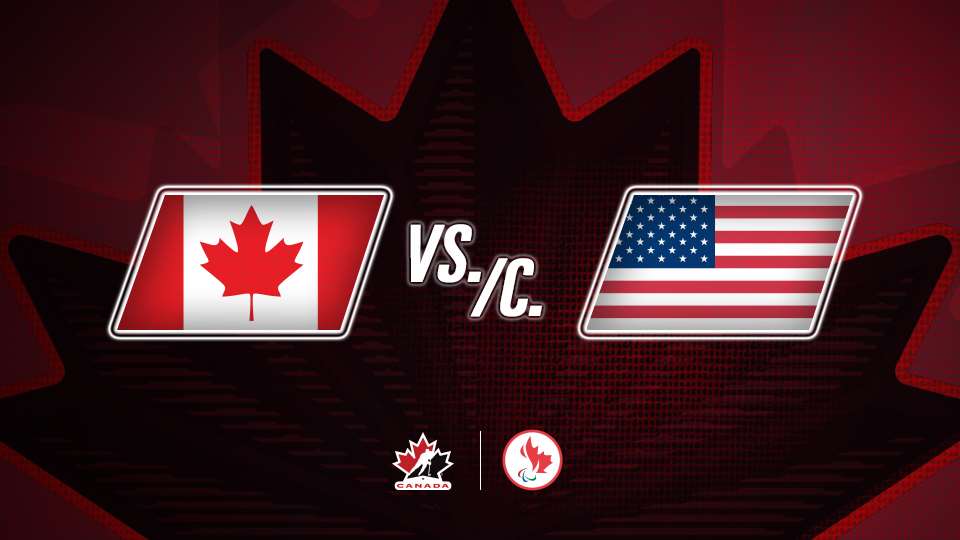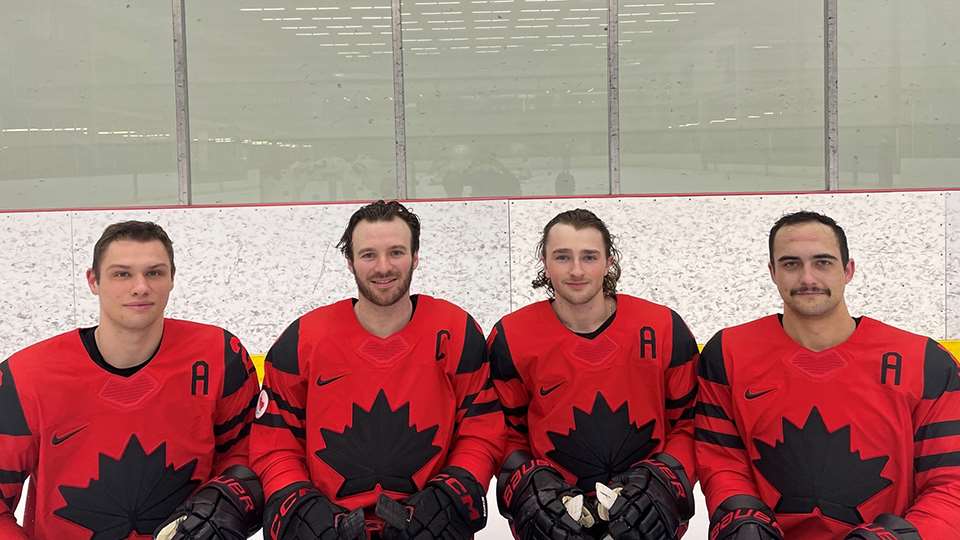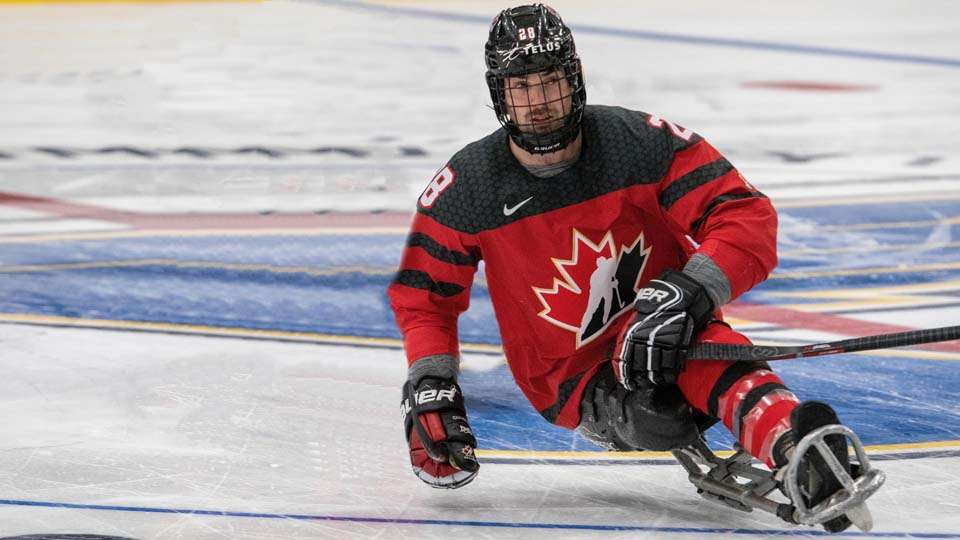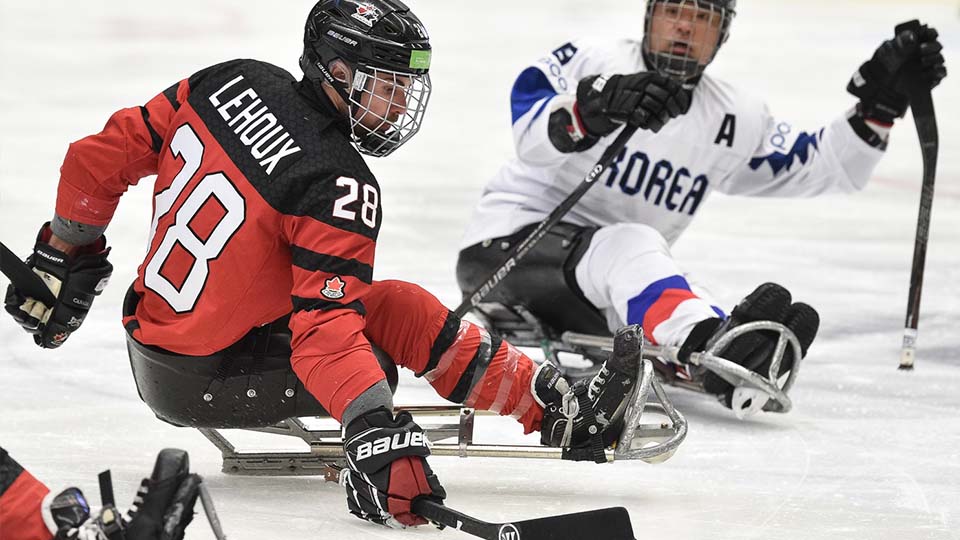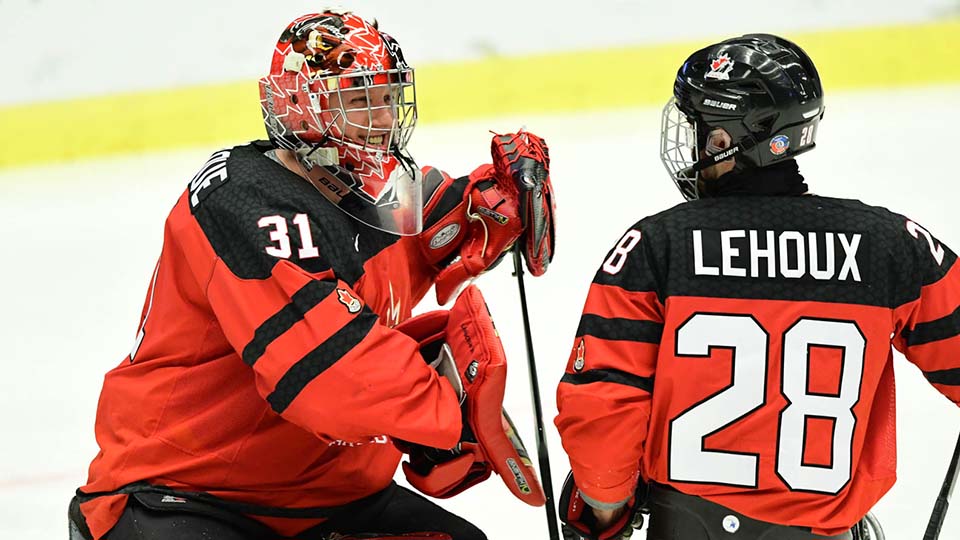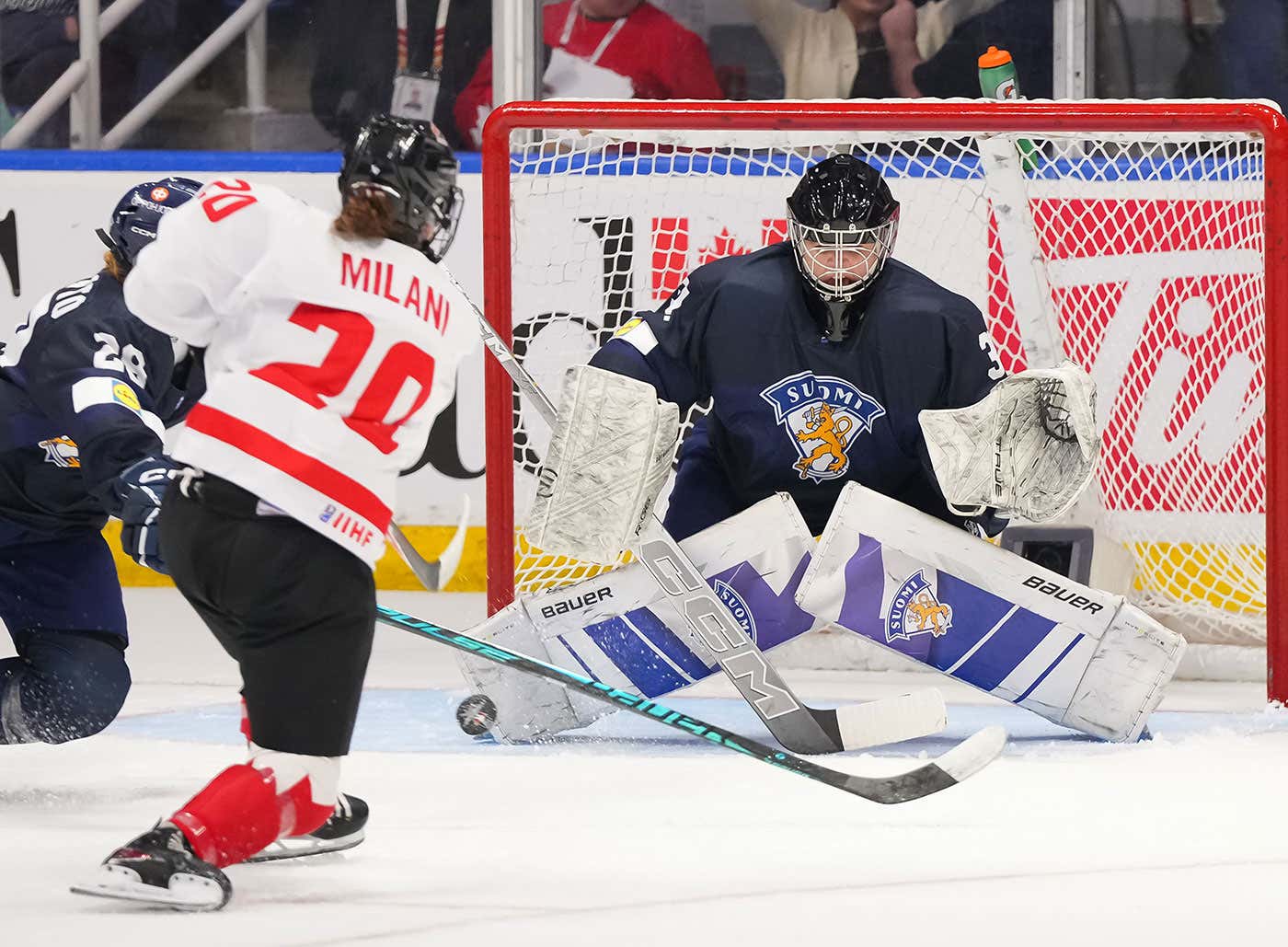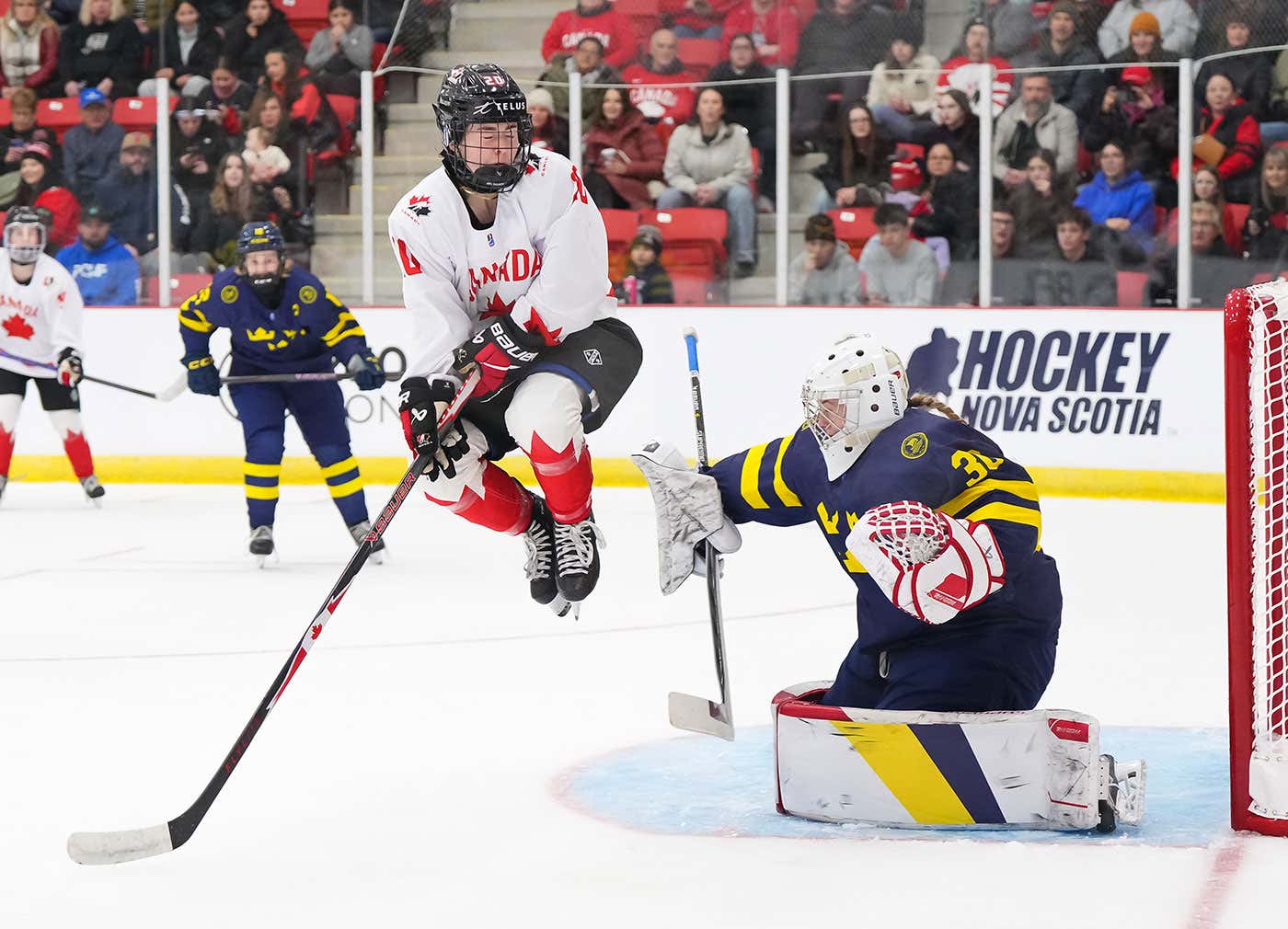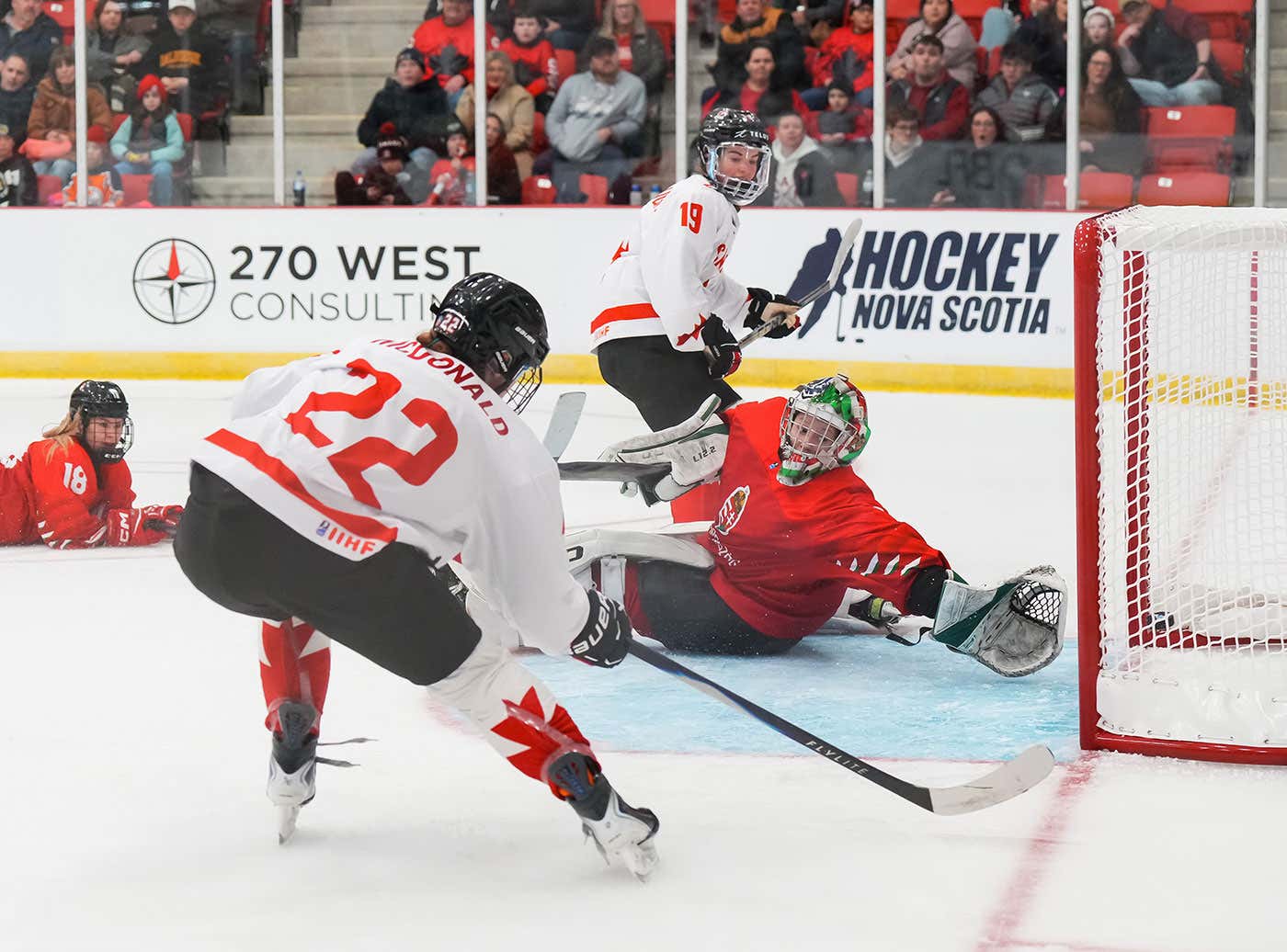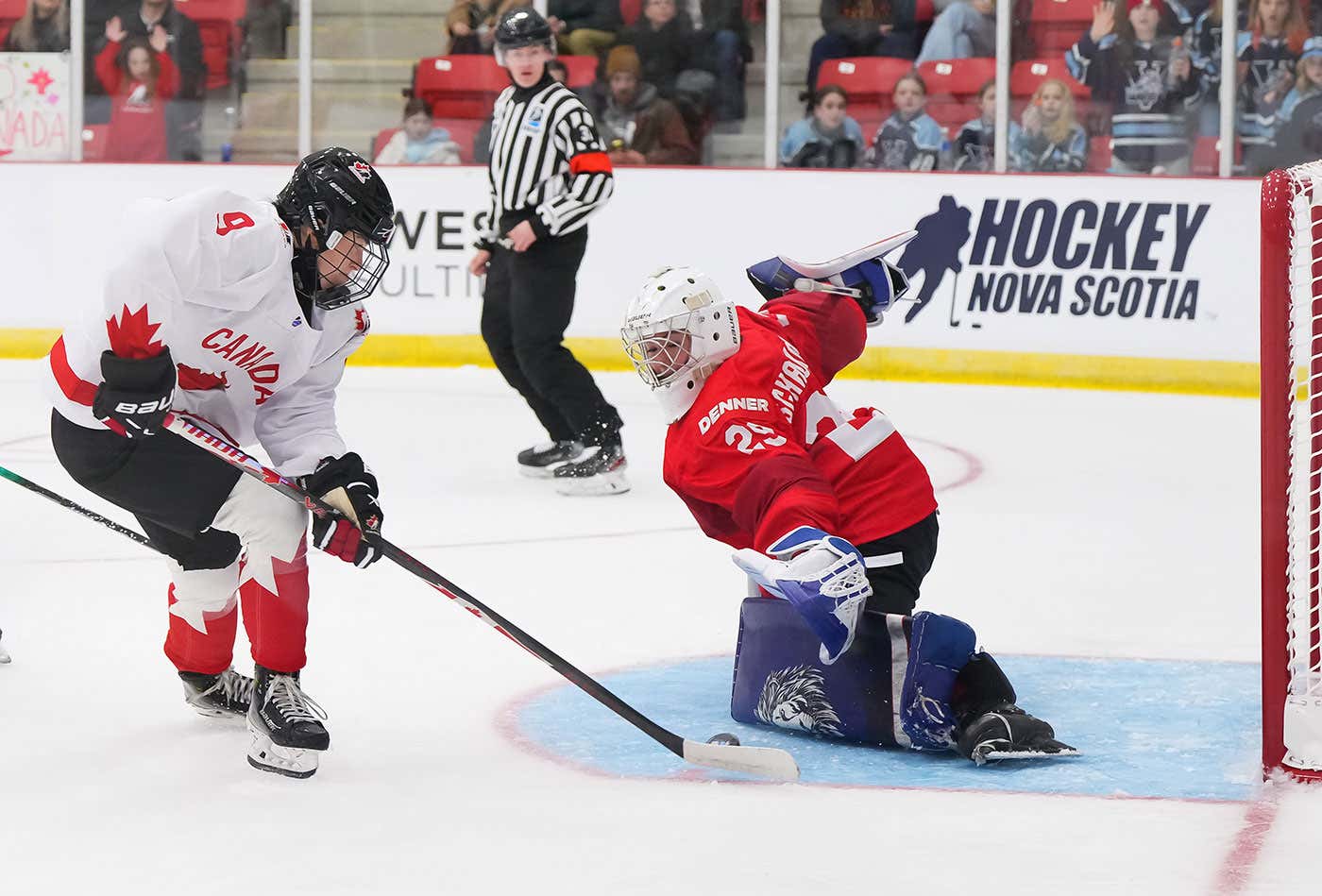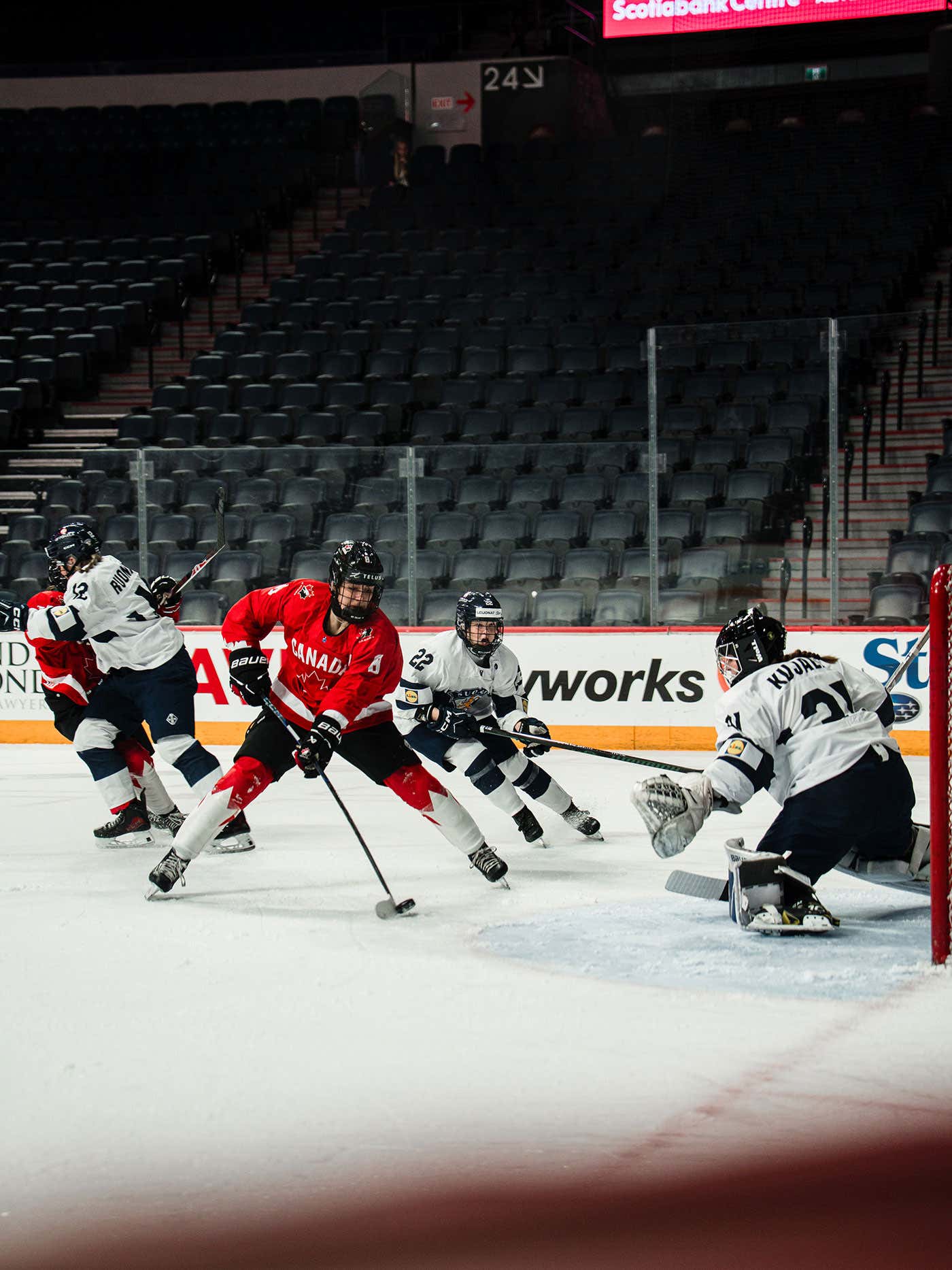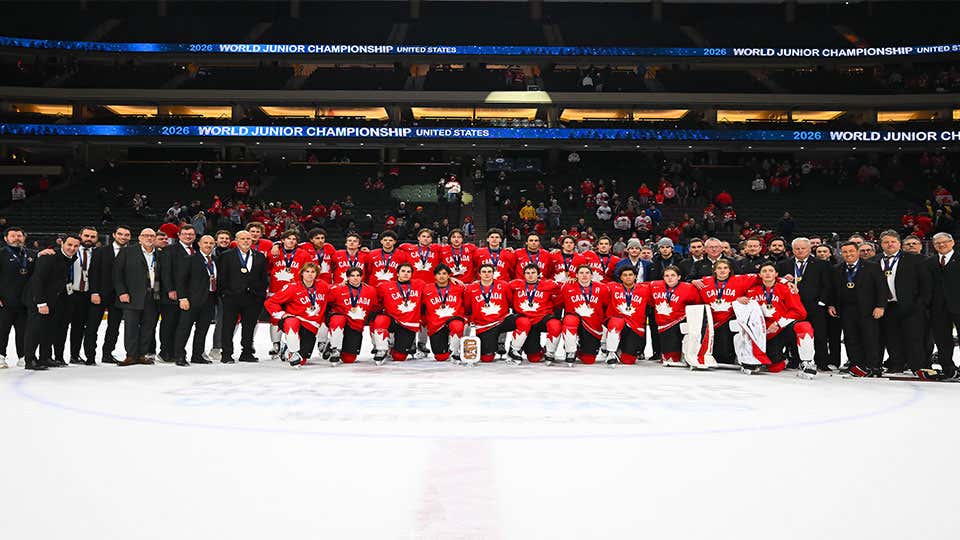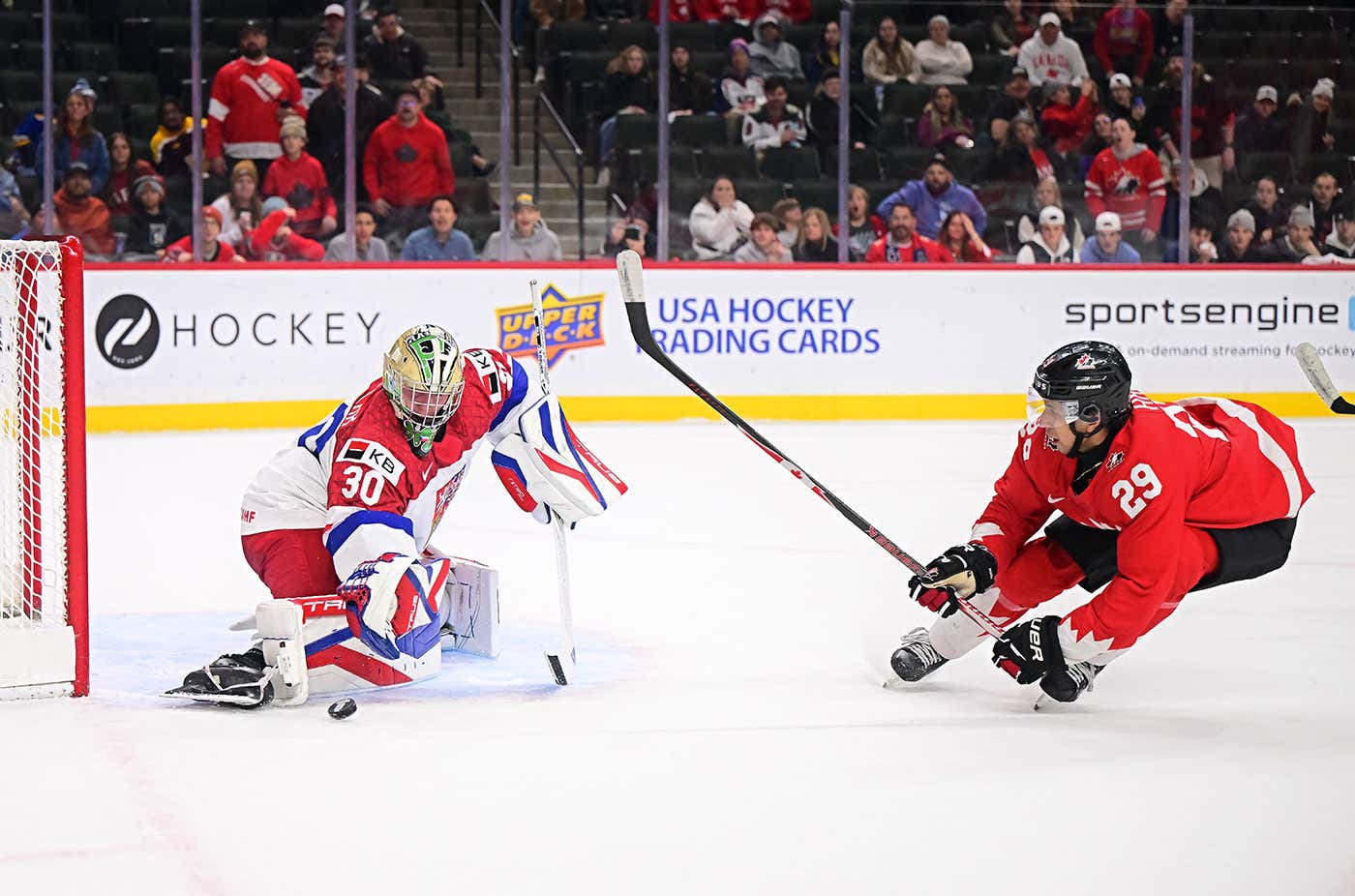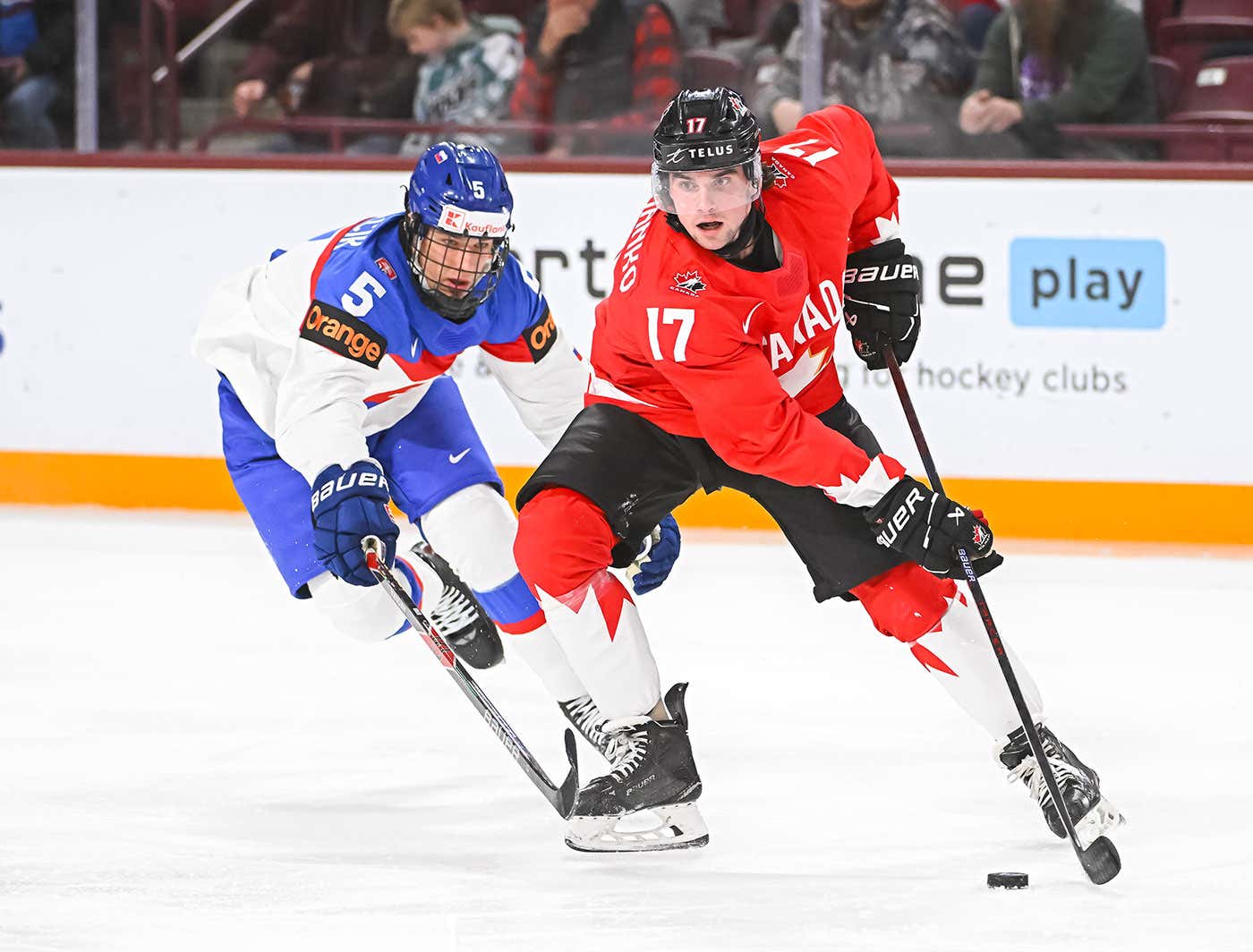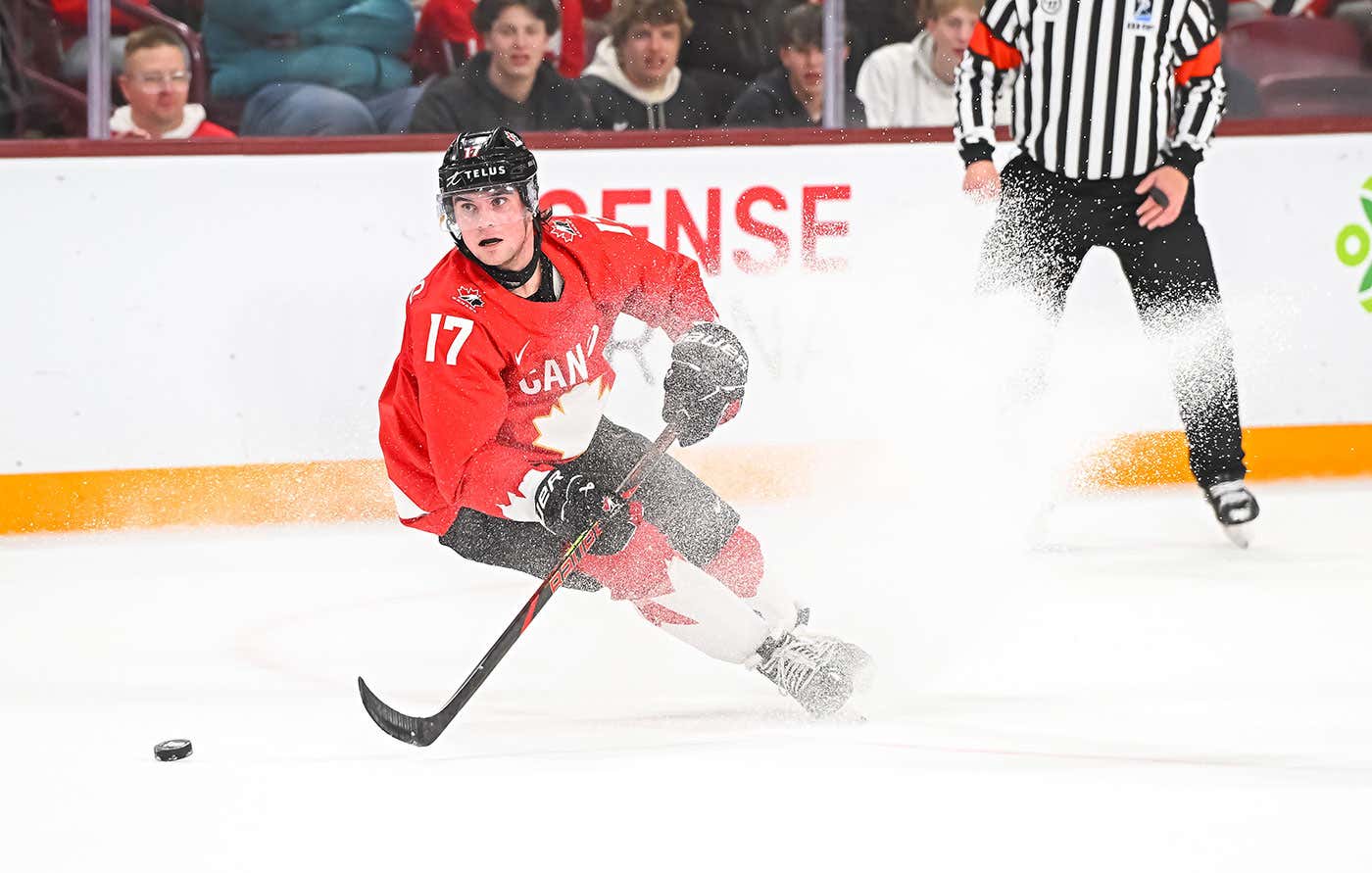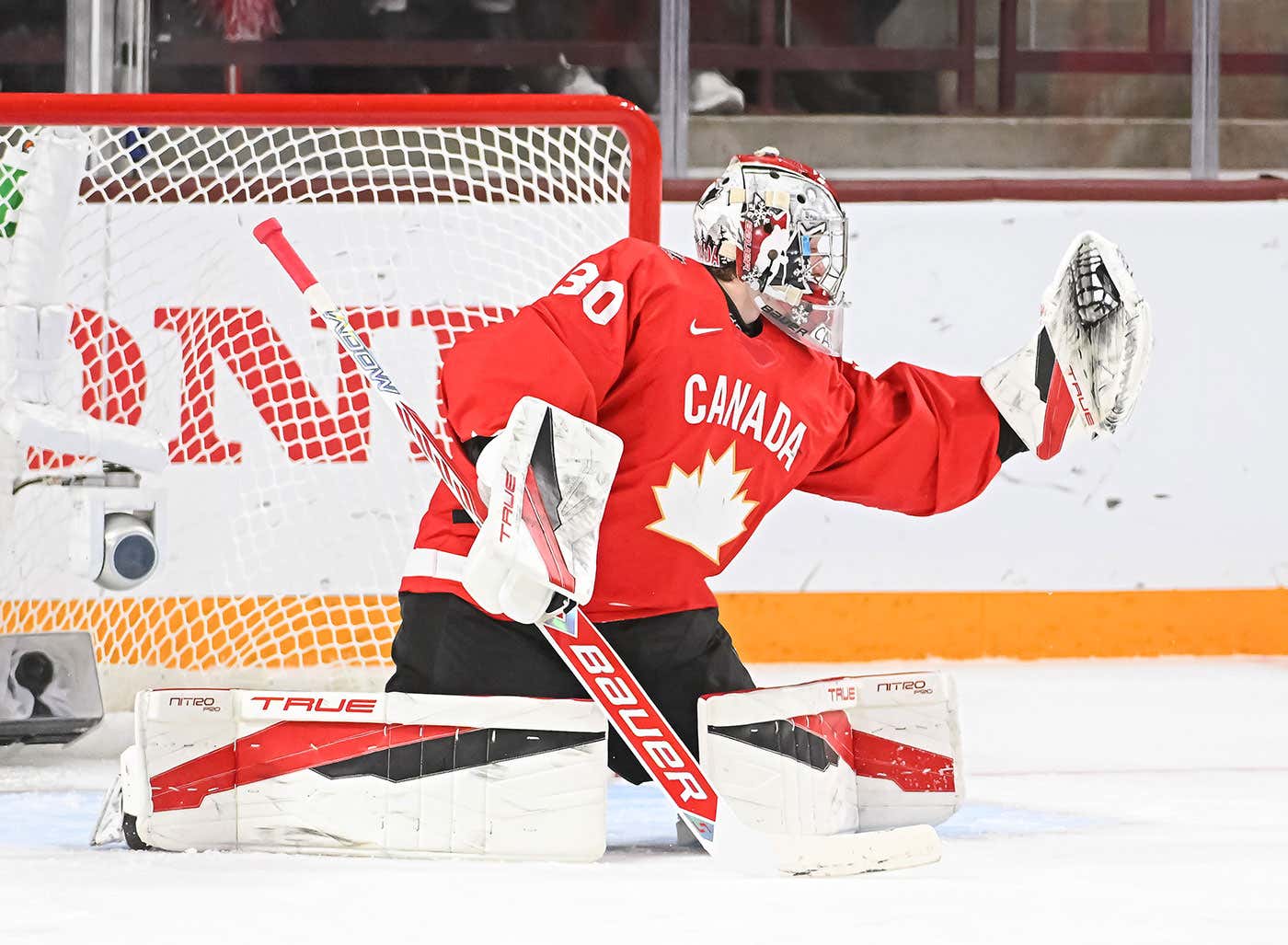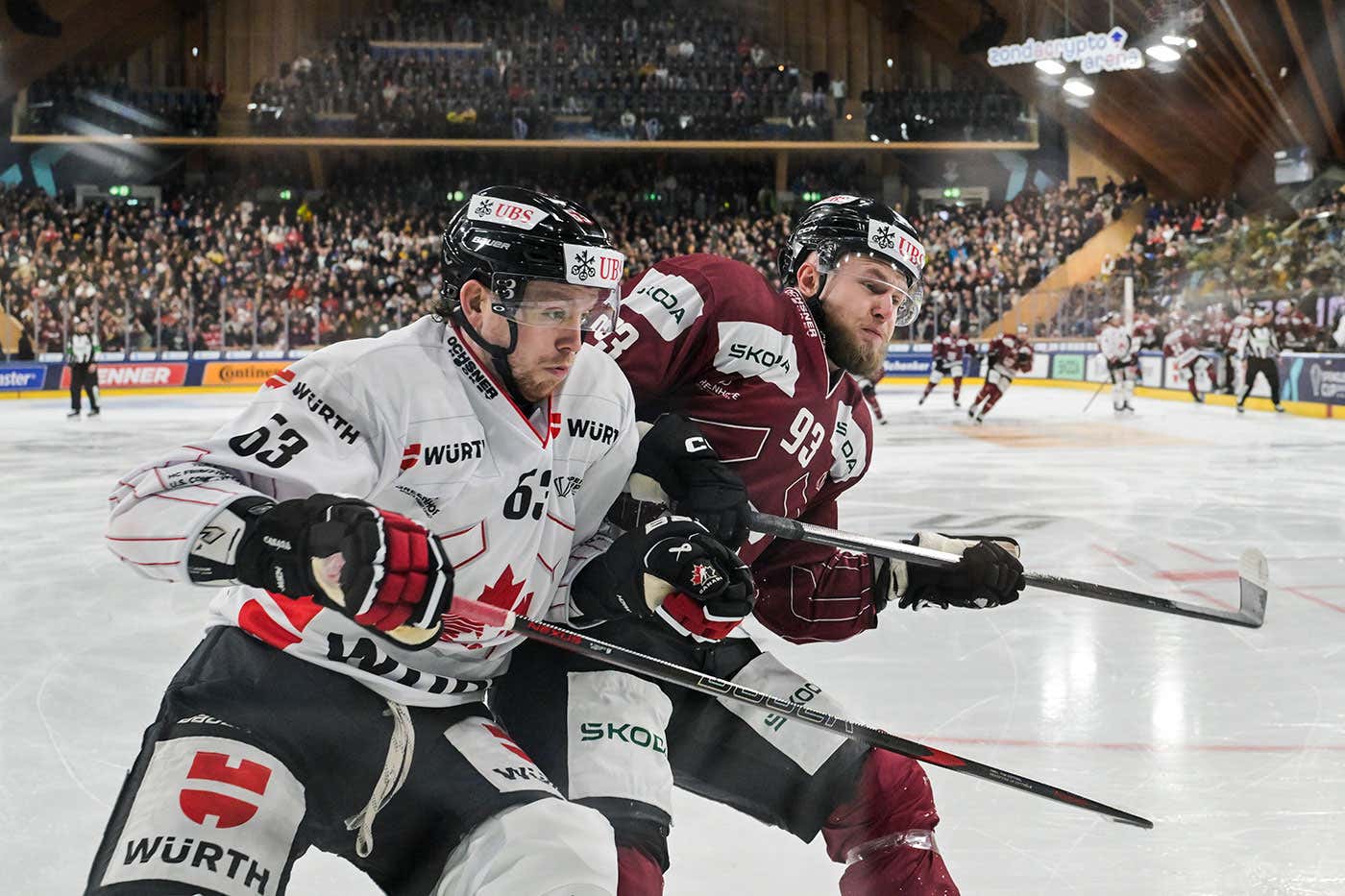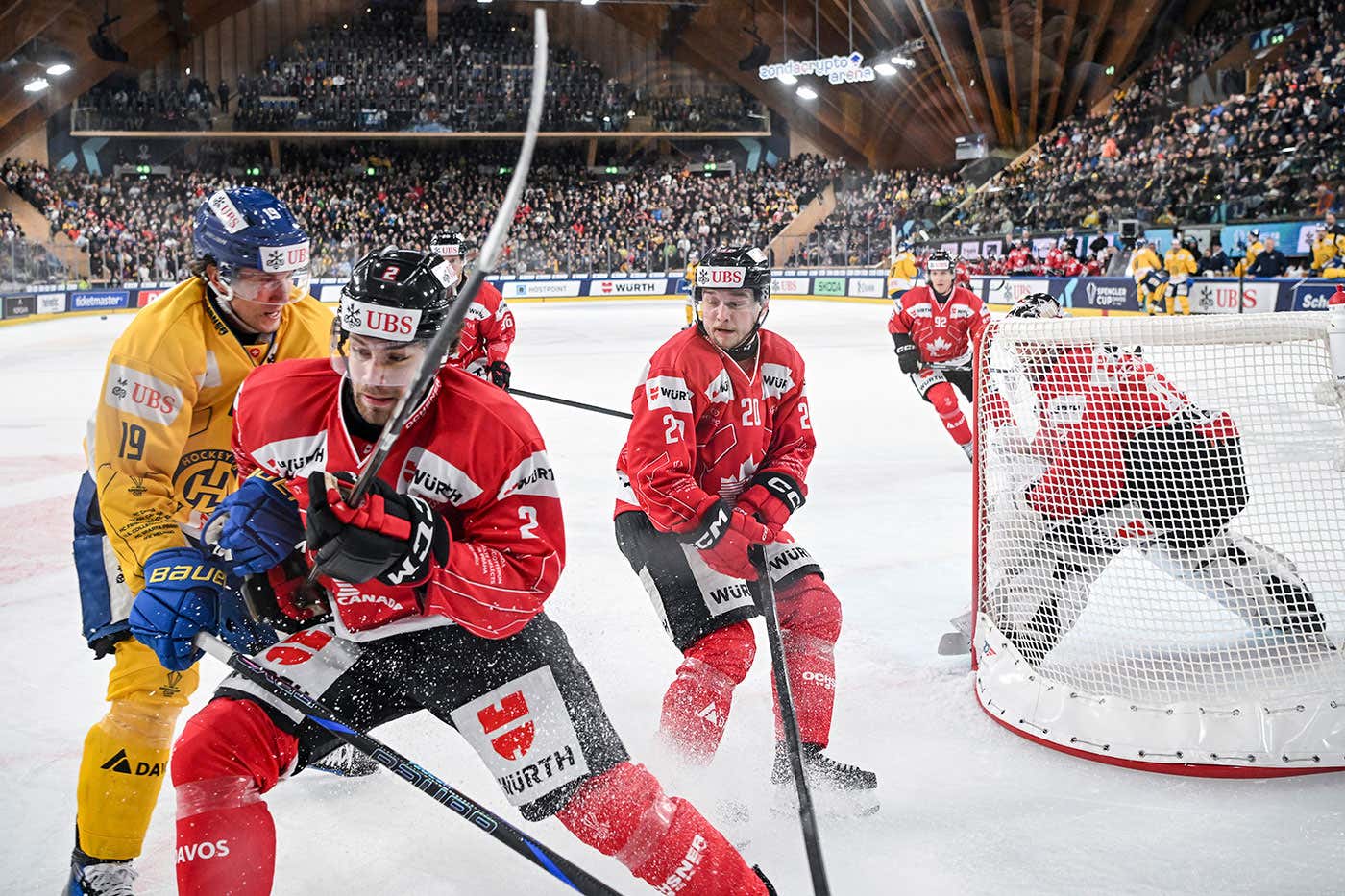
Schedule
Team Canada (Men)
2026 Olympic Winter Games | Feb. 11-22, 2026
IIHF U18 Men’s World Championship | Apr. 22 - May 2, 2026
IIHF World Championship | May 15-31, 2026
Junior A World Challenge | Dec. 7-13, 2025
U17 World Challenge | Nov 2-8, 2025
IIHF World Junior Championship | Dec. 26, 2025 - Jan. 5, 2026
Spengler Cup | Dec. 26-31, 2025
Search
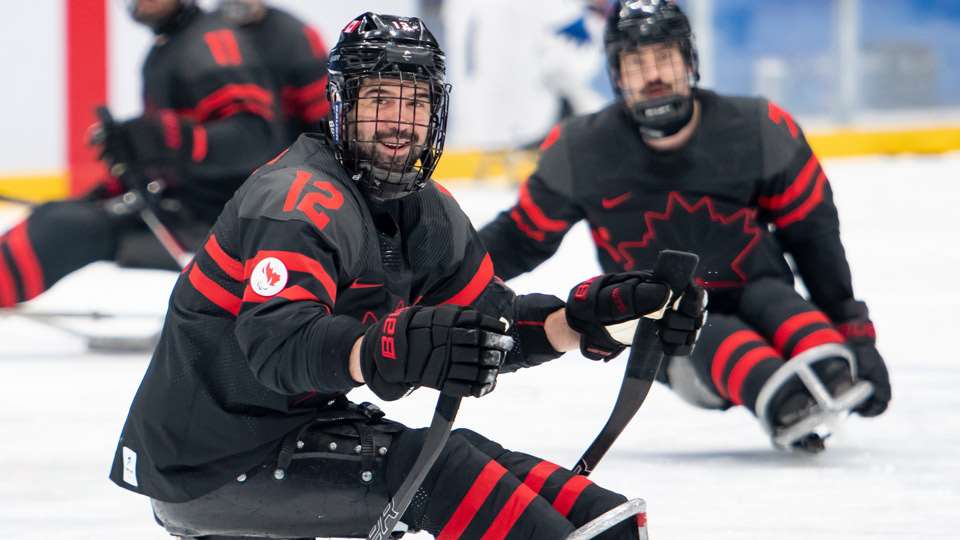
Leaving a legacy and passing the torch
After 19 years representing his country, para hockey veteran Greg Westlake is retiring after Beijing 2022, but his passion and advocacy for the sport will live on

With an intensive training schedule and the sole focus of achieving their goal to take home a gold medal, the little moments athletes experience on their road to the Paralympics can easily blur together.
But for Greg Westlake, who is participating in his fifth Paralympic Winter Games, he’s taking the opportunity to soak in every moment. That’s because the 19-year veteran of Canada’s National Para Hockey Team has announced that he will be retiring at the end of Beijing 2022.
“I’m really happy that I came out ahead of it and said that this was going to be my last one,” Westlake says. “It’s kind of freed me up and allowed me to really just enjoy all the little things.”
The realization that he is nearing the end of his career really sunk in a few days before Canada’s Paralympic Hockey Team left for Beijing. After the team’s last practice in Calgary, the gravity of the moment hit the 35-year-old while he was in the dressing room.
“It was my last ice time in Canada,” he says. “The practice ended, and I was just sitting there like ‘I don’t know when I’m going to play hockey in Canada again.’”
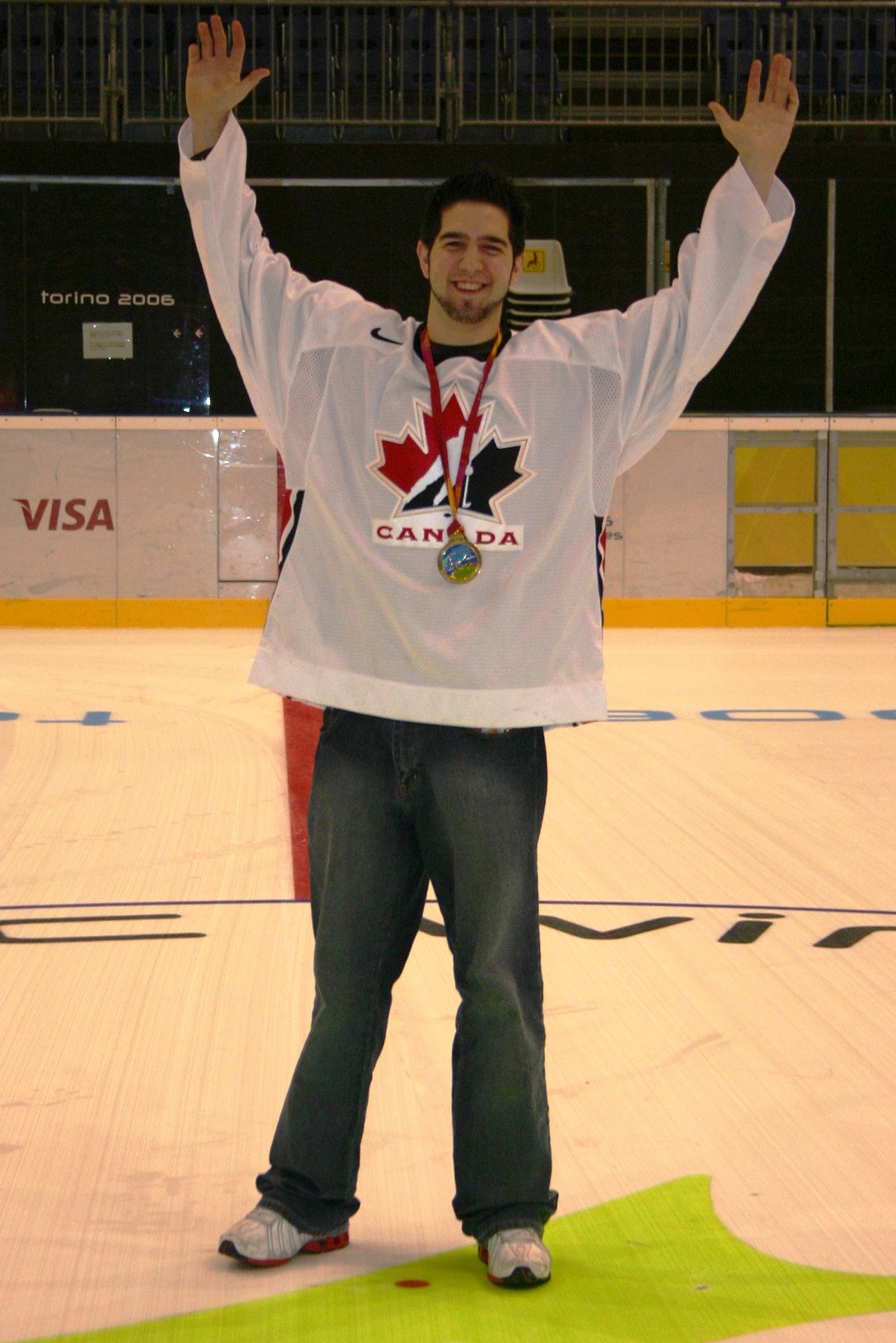 Beijing 2022 ties a bow on an accomplished career with Team Canada.
Westlake joined the para hockey program in 2003 and has played as a
goaltender, a defenceman and a forward. He won gold at his first Paralympic
Games in 2006 and has since won two more Paralympic medals: bronze in 2014
and silver in 2018.
Beijing 2022 ties a bow on an accomplished career with Team Canada.
Westlake joined the para hockey program in 2003 and has played as a
goaltender, a defenceman and a forward. He won gold at his first Paralympic
Games in 2006 and has since won two more Paralympic medals: bronze in 2014
and silver in 2018.
At the beginning of the 2010-11 season, Westlake was named captain and served in that role for eight years. In IPC World Para Hockey Championship action, he has won three gold medals (2008, 2013, 2017), two silver (2015, 2019) and two bronze (2009, 2012).
On top of those accolades, Westlake was honoured with leading Team Canada into the Opening Ceremony of Beijing 2022 as one of the country’s flag bearers. His eyes are set on winning gold in his final competition, but he also hopes to experience the Games from the perspective of his younger teammates.
“I want to live the Games through some other people's eyes a little bit, you know, the guys who it's their first time walking into an Opening Ceremony,” he says. “I think, for me, that's really fun and exciting. Seeing a 19-, 20-year-old kid just like, ‘Greg, aren't you excited about the opening ceremonies?’ You see that excitement; it makes you young again. It makes you feel like it's your first time and that really excites me.”
As a member of the national team for almost two decades, the Oakville, Ont., native has had the opportunity to be teammates with many para hockey players. As the team evolved, his leadership style also evolved to best serve his teammates. Looking back, Westlake says he was a boisterous, energy guy when he first joined the team, but he has a calmer approach now. He prefers conversations over coffee or being a source of advice.
“Every single team is different,” he says. “They’re going to have new dynamics, new wants and needs and things that it takes for that team to be successful. You got to be a bit of a chameleon, you got to be able to blend into where you’re needed most and do that role to the best of your ability. I try my best to do that.”
For younger players, like Branden Sison and Anton Jacobs-Webb, who looked up to Westlake as a role model, the ability to be teammates with him is an exciting opportunity.
“It's pretty surreal, to be honest,” says Sison, who was inspired watching Westlake on TV at the 2010 Paralympics in Vancouver. “You never really think you'll be seeing a guy on TV and then getting the chance to play with him on a line or as a D-pairing or whatever. But he's a really, really amazing player.”
As a teenager, Jacobs-Webb met Westlake at the Cruisers Cup in Brampton, Ont. After playing his games in the junior division, he watched Westlake compete in the elite division and stuck around after the game to have him sign a pair of gloves and take a photo together.
“It was kind of a big moment. I was pretty nervous,” Jacobs-Webb says. “My parents were like, ‘Yeah, go talk to him’ when I didn’t really want to. But I’m really happy I went to talk to him in the end.”
“He was a shy kid,” Westlake says of Jacobs-Webb. “What I enjoyed about meeting him was he was a fan of the sport, like he knew who I was.”
The teammates have come a long way since then, but the impact Westlake had on Jacobs-Webb while he dreamed of wearing the Maple Leaf as a kid remains to this day.
“Of course, we’re teammates, we’ve played together for four years, but
there’s still a tiny bit [of me that] can’t get over it. It’s still Greg. I
watched pretty much all of his YouTube videos,” Jacobs-Webb says. “He’s got
a big name and it’s crazy to play with him.”
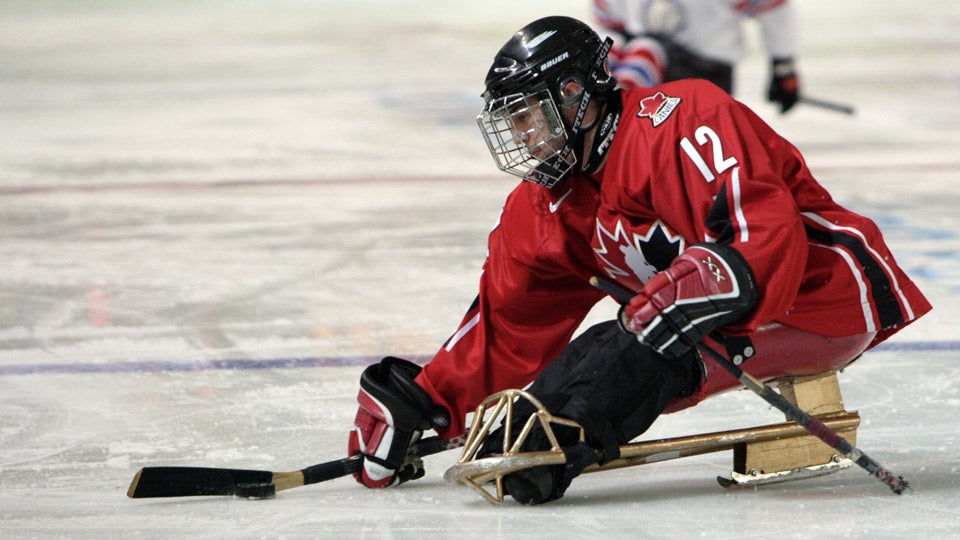
On the ice, Westlake is known for his competitive spirit and the way he grinds and battles for pucks. His ability to adapt throughout the years also stands out to his teammates.
“I compare him to LeBron James; he’s well-versed in the sport and he changes his game play throughout the years to adapt to the new style of play that we have,” Sison says. “It’s a very fast style of hockey nowadays. He’s been able to keep up with that throughout the years and change his style of play. Also going from defence to forward, he’s a very versatile player.”
A unique aspect of Canada’s Paralympic Hockey Team is the mix of veterans and rookies—Sison and Jacobs-Webb are among seven players making their Paralympic debuts in Beijing. With a veteran like Westlake closing the book on his para hockey career, it symbolizes a passing of the torch to the next generation.
“I don’t want to say goodbye to them just yet because they’re that valuable to us and to the team. But the next generation is coming, and we’re looking pretty strong,” Sison says. “I think they’ll be very proud of the direction that [Canada’s National Para Hockey Team] is going. I think they’re leaving it in good hands, and they’ll be happy with the results that we’re going to bring in the future.”
“I think it’s a great opportunity for us,” Jacobs-Webb adds. “We get a bit of mentorship, we get to follow their leadership and we get to learn a lot from them. By the time they’re gone, I think we’re going to be pretty well set. We have a good core.”
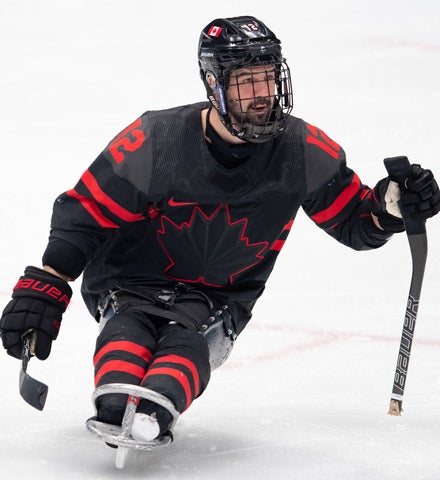
“The biggest difference I see is more and more guys have the ability to make a living being an athlete representing their country and train full-time. That was something that in the past, it just wasn’t there,” he says. “When we can get to the point where every single guy on the team, this is what they do, that will be great.”
Another goal for Westlake is for para hockey to gain more exposure and garner more fans to continue to push the sport forward.
“I can only speak from my experience; I can’t speak for everyone. But as a kid growing up with two artificial legs, I never saw anybody that looked like me on TV. I never saw anybody in a prominent hockey role that looked like me,” Westlake says. “It was hard for me to have these goals and ambitions and dreams in hockey because I just didn’t think it was possible.
“When you look at 10 to 15 years down the road, I see more games on TV for us, not just one a year. I see way more advocacy, just more representation.”
Right now, Westlake is focused on finishing his career on a golden note in Beijing. After the Paralympics are done and his playing career is complete, he hopes to stay involved in the hockey world.
“I don’t know exactly what that is yet, but I love player development. I love scouting. I love the management side,” he says. “As it pertains to this program—anything, anytime. It’s a yes for me all day.”
His time wearing the Maple Leaf on his sweater may be complete, but his legacy in para hockey and his passion for the sport will live on.
“I just love the game. I love the team. It’s been my favourite thing since I was three years old and I get emotional talking about it,” he says. “I hope people know that in the times when it wasn’t the biggest sport in the world, I was there trying to do my best to promote it and trying to leave it in a better place than I found it.
“I just have a lot of love for the program. And I hope people know that.”
For more information: |
- <
- >

















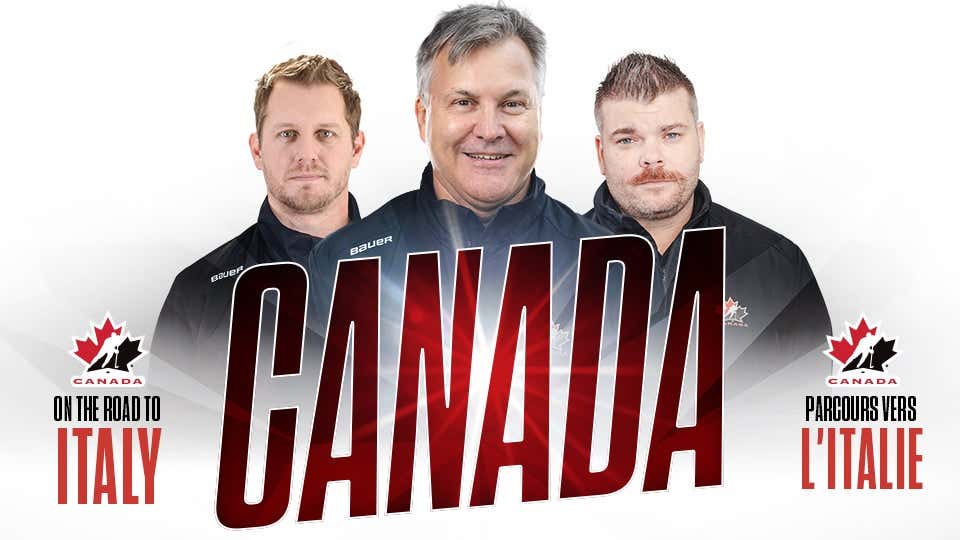
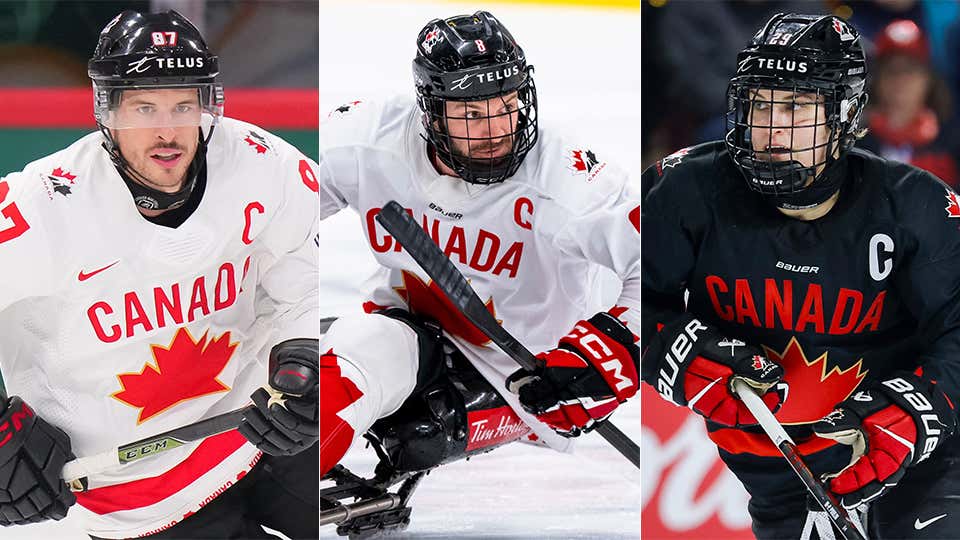


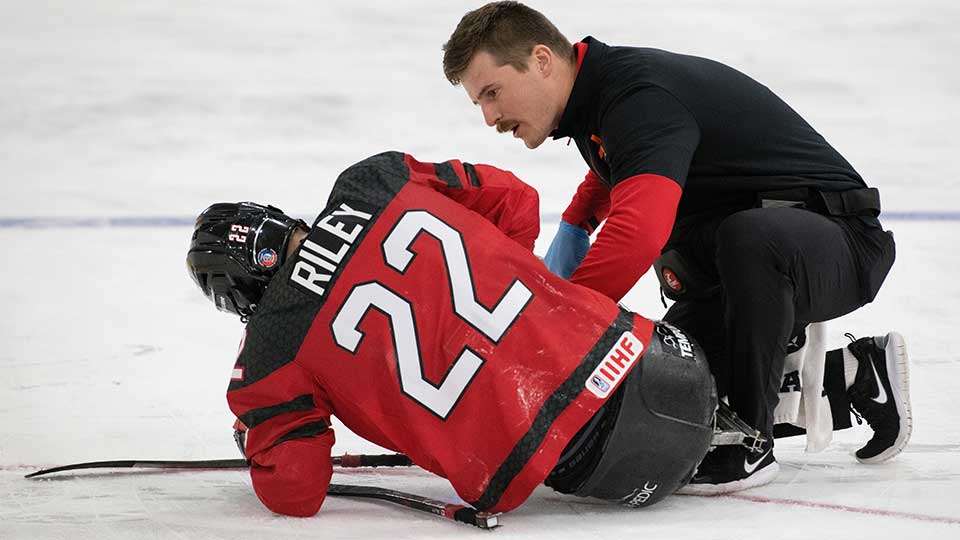
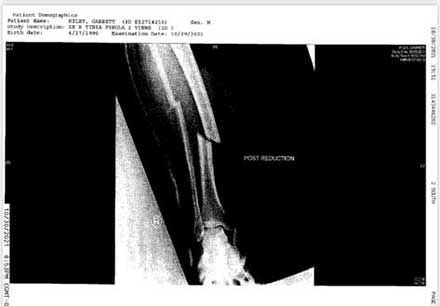 Riley is no stranger to hospitals. He was diagnosed with osteosarcoma at 15 and had his left knee replaced with a prosthetic joint to try and save the rest of his leg. Seven years later, an infection took hold and Riley became septic, leading to an above-knee amputation when he was 22. Since that operation in 2017, he has dealt with issues surrounding his residual limb, including extreme pain requiring a handful of additional surgeries.
Riley is no stranger to hospitals. He was diagnosed with osteosarcoma at 15 and had his left knee replaced with a prosthetic joint to try and save the rest of his leg. Seven years later, an infection took hold and Riley became septic, leading to an above-knee amputation when he was 22. Since that operation in 2017, he has dealt with issues surrounding his residual limb, including extreme pain requiring a handful of additional surgeries.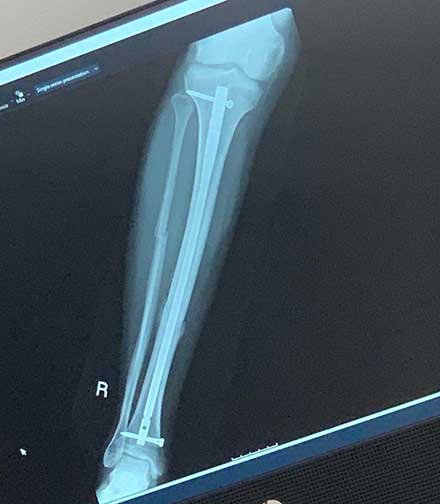 Everyone was surprised when the ice was ready for puck drop on Oct. 29, and the excitement was palpable. Fans started arriving, including a family of four originally from north of the border, all dressed proudly in the red and white. Riley was anxious to get back on the ice wearing the Maple Leaf, but all the nerves drifted away in warmup.
Everyone was surprised when the ice was ready for puck drop on Oct. 29, and the excitement was palpable. Fans started arriving, including a family of four originally from north of the border, all dressed proudly in the red and white. Riley was anxious to get back on the ice wearing the Maple Leaf, but all the nerves drifted away in warmup.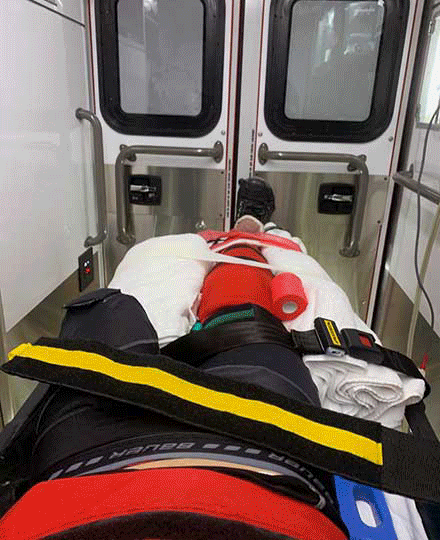 Diklich rode with him in the ambulance to the hospital and spoke to the St. Louis care team. As an emergency room physician himself, Diklich has seen his fair share of bad breaks. He was there when they tried to remove Riley’s equipment but had to sedate the forward to do so. And once it was off, it was evident why. Riley had a compound fracture; the tibia had broken through the skin. A difficult injury for anyone to deal with, let someone with only one leg.
Diklich rode with him in the ambulance to the hospital and spoke to the St. Louis care team. As an emergency room physician himself, Diklich has seen his fair share of bad breaks. He was there when they tried to remove Riley’s equipment but had to sedate the forward to do so. And once it was off, it was evident why. Riley had a compound fracture; the tibia had broken through the skin. A difficult injury for anyone to deal with, let someone with only one leg.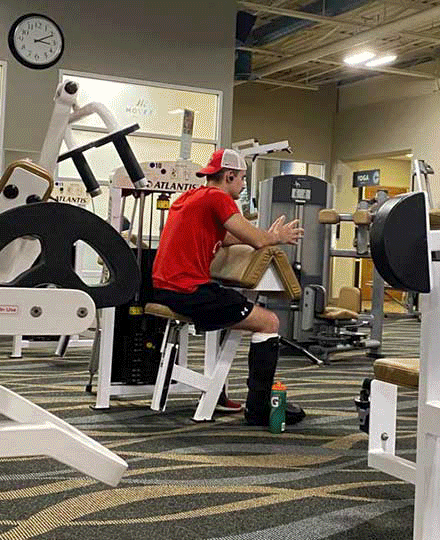 It started off small enough, but for Riley even that brought back memories from his teenage cancer and the infection that ultimately cost him his left leg. It was a tense two weeks, with everyone in Riley’s life watching and waiting to see if he could fight it off. Suddenly, returning to hockey wasn’t the priority anymore. Saving his one remaining leg was all that mattered.
It started off small enough, but for Riley even that brought back memories from his teenage cancer and the infection that ultimately cost him his left leg. It was a tense two weeks, with everyone in Riley’s life watching and waiting to see if he could fight it off. Suddenly, returning to hockey wasn’t the priority anymore. Saving his one remaining leg was all that mattered.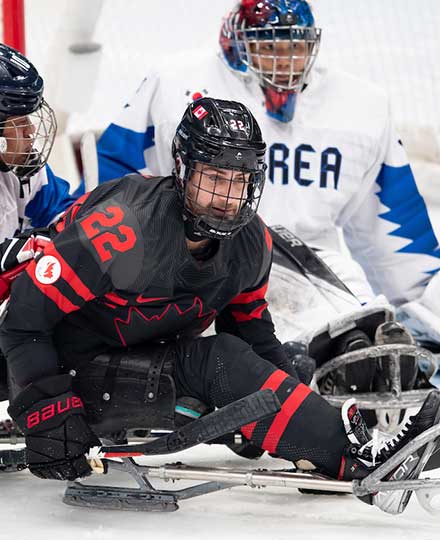 Riley quickly had the same realization; those two months recovering had played havoc with his fitness and timing. If he wanted a shot at the Paralympic roster, he was going to need more ice time, more specific training and more coaching, but options were limited at home in Ontario. Babey suggested Riley come to Calgary early in January to work with him and the Alberta-based players, but also to have focused sessions with Yu and the support staff.
Riley quickly had the same realization; those two months recovering had played havoc with his fitness and timing. If he wanted a shot at the Paralympic roster, he was going to need more ice time, more specific training and more coaching, but options were limited at home in Ontario. Babey suggested Riley come to Calgary early in January to work with him and the Alberta-based players, but also to have focused sessions with Yu and the support staff.